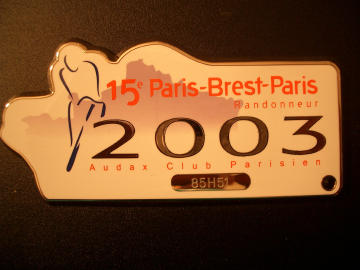The quick takeaways:
–It’s a little hard to take in the dimensions of Lance Armstrong’s accomplishment. On the sporting level, I think it’s on a par with Muhammad Ali’s domination of the heavyweight division before he was drafted or Michael Jordan’s taking over the NBA. They existed on planes above their contemporaries, and so does Lance.
–His accomplishment will remain under a cloud, I think, until there’s a definitive answer to questions about whether Armstrong used “illegal substances.” (Good piece in Velonews on this today from former racer and l’Alpe d’Huez stage winner Andy Hampsten.) The cynical assumption, from which I’ve tried to refrain, is that he’s been on something. Maybe the definitive answer will never come and the cynical assumptions will win the day. What a shame.
–The Tour next year: Will Lance ride again? It’s hard to imagine him not defending the title. One thing I’m interested in what will happen to race coverage here when he’s finally out of the race. The Outdoor Life Network has had a ready-made hometown superstar to promote and has done a good job of building its coverage around him. But what if the favorites were a German, an Italian, and a Russian? For serious cycling fans, the Tour would still be compelling. But I think OLN would lose most everyone else without another legitimate U.S. threat.
–Speaking of the next U.S. threat: Who is it? I have no idea, and that means nothing, because I don’t know much about what’s happening in the pro cycling ranks. I think it’s fair to say that when LeMond’s star faded, few saw Armstrong’s rising as a great Tour rider, and virtually no one saw him as a future champion.
–Speaking of OLN: As I said, they did a nice job building and marketing a month-plus of programming built around Armstrong (even if “The Cyclysm” is a cataclysmically dumb banner for the programming event. But: You wonder if they could do better with the broadcasting team. On the plus side, Bob Roll is great: Knowledgeable, funny, with a winning way of never taking himself or the Tour too seriously. But Al Trautwig combines lack of cycling knowledge with a suave, empty broadcasting style that’s got to go. And the play-by-play/color team of Phil Liggett and Paul Sherwen are trapped in a cyclysm of gasping superlatives, butchered metaphors, and pure and simple miscalls of the action. The final one came today, when Liggett announced that Fabian Cancellara, the young rider who had won the prologue three weeks ago, had gone off the front on the next-to-last lap of the street circuit in Paris. Both he and Sherwen narrated his big push up the Champs Elysee and his attempt to stay clear of the peloton. Then, after a good two or three minutes of this, the rider made the turn just before the Arc d’ Triomphe and voila, the OLN twins noticed it was not Cancellara at all but Juan Antonio Flecha. Think about that kind of mistake in any other sporting event you can think of. Hard to imagine it being tolerated.
Like this:
Like Loading...


